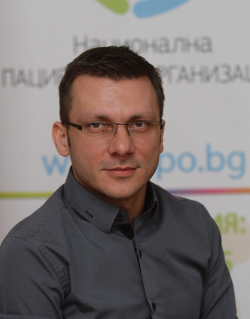Medication
Facing the challenge of multimorbidity
In an interview in advance of the European Health Forum in Gastein, Dr. Stanimir Hasurdjiev, a board member of the European Patients’ Forum, talked about the challenge of multimorbidity and how to make it work for the patient.
Report: Michael Krassnitzer

New drugs – especially in oncology – are becoming more and more expensive. How, in times of austerity, can the patients’ access to new medicines be ensured?
Healthcare continues to be a highly innovative field, for the benefit of the patient. We see new treatments for diseases that had been untreatable before, we see personalized medicine, which is looking for individual approaches for each patient. These advancements come with a price tag. Even the wealthier countries are struggling with the costs. Therefore, I think time has come in Europe to act and to establish a pricing system that is really fair, based on solidarity and on the fact that all European citizens have the right to innovation.
In which countries does access to new medicines work well and where is access to new drugs limited?
Traditionally, there are some countries in Europe where patients and citizens have very early access to medicines, for example Germany, the United Kingdom or France. In others however, mainly in Central and Eastern Europe, the time span between approval of a new drug and accessibility for the patients is much longer. There it can take two years or even more, before the patients and the citizens can benefit from the innovation. For example in Bulgaria, the country where I live, the law says that the costs for a new medicine will only be reimbursement when five other countries already do that. Then the local reimbursement process starts, but it can take months before a decision is made. Moreover , new medicines are reimbursed only from 1 January of the year following the year of the positive decision for reimbursement. You can imagine that it can take really long before patients can benefit from the innovation.
Why is this so? Is it a question of money?
It is a complex problem, but money is definitely a big obstacle – especially for countries with a lower gross domestic product (GDP), where the pressure on the healthcare budget is really high. The EU pricing system keeps the prices more or less at the same level for all European countries – which is not always fair because of the substantial differences in GDP between the wealthier and the poorer countries. But the people in the poorer countries have to pay similar prices because of the external reference price system.
How does this external reference price system work?
External reference pricing system means that each county can compare prices to other countries. In Bulgaria, for example, each producer or importer of pharmaceuticals has to offer the lowest possible price of all EU-countries. However, Bulgaria is a reference country for Spain. Thus, even if a pharmaceutical company acknowledged the economic situation and the constraints and offered Bulgaria a lower price, it would immediately influence the bigger and more profitable market in Spain. And from Spain this price could spread to any other European country. This was a very good mechanism to reduce prices as long as there were fewer members of the European Union and the Member States were similar in economic development. Today, there are so many Member States that are economically not as highly developed – and that creates definitely problems.
Is there a chance to change this system?
This debate is ongoing in Europe. I can see a shift to more openness to talk about the issue. One option to consider is the so-called differential pricing system. In other words: tailored pricing depending on a country’s ability to pay – based on GDP – and its willingness to invest in healthcare. But it is tough because it would need a fundamental change in European legislation.
What kind of change do you mean?
Firstly, the wealthier countries have to agree that poorer countries have the right to pay less. Secondly, and that is a bit more difficult, there has to be a guarantee that cheaper medicines from a poorer country won’t appear in more wealthy markets. In Europe, we have the fundamental rule of free movements of goods: Everyone can buy cheap medicines in Bulgaria and sell them on wealthier markets such as Germany or France. This is one of the reasons why most of the companies keep similar prices for the whole European market.
What should be done concretely?
Probably we have to think of ways to restrict parallel trade – at least within a cluster of countries with similar economic development. The most important objective is to ensure that every European patient has similar access to innovation in his own country. Poor access to new drugs in a Member State creates not only problems for this state, but also for other states: The lack of adequate healthcare in your country, that can save your life or the life of your children, is a very good reason to migrate and to find a country where you have better chances for survival.
PROFILE:
Dr. Stanimir Hasurdjiev (also Hasardzhiev) is a board member of the European Patients’ Forum as well as a member of several other regional and international organisations and networks. He is one of the initiators and founding members of the joint initiative of the European Patients’ Forum and the Bulgarian National Patients’ Organisation – the Patient Access Partnership – a multi-stakeholder platform for finding innovative solutions to reduce inequities in access to healthcare in Europe.
01.10.2015










